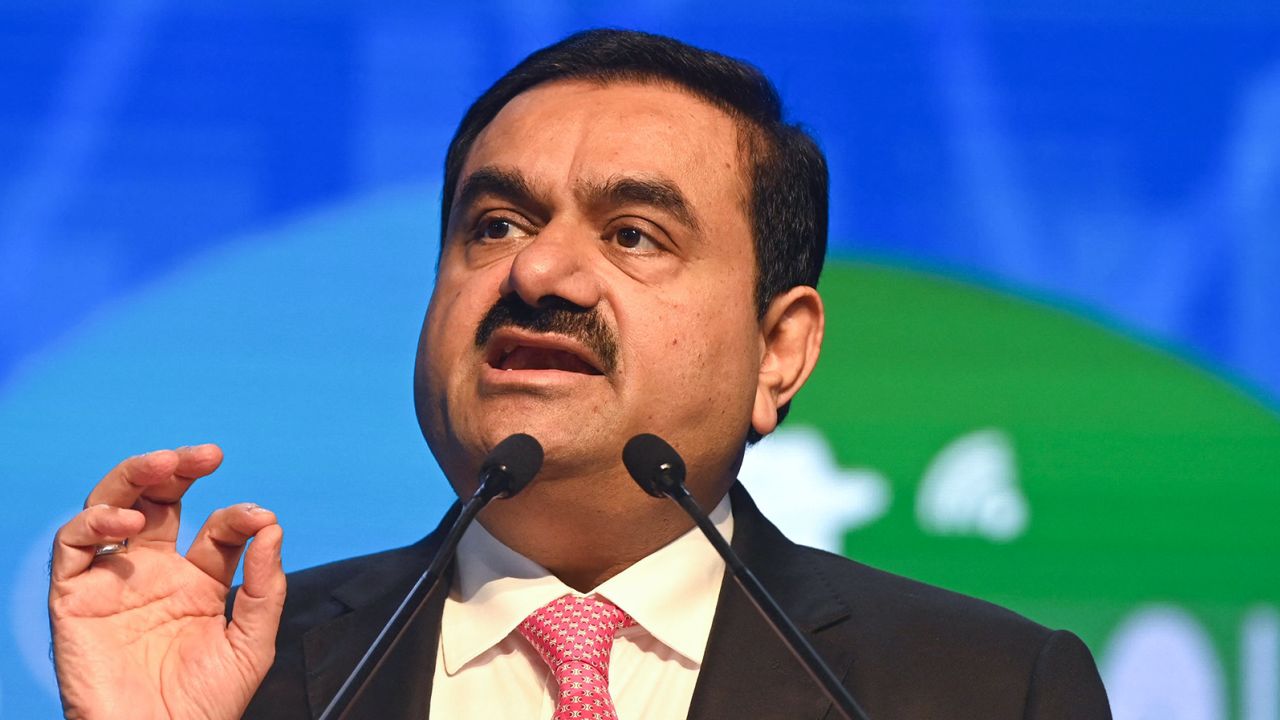Gautam Adani may have to be a very different kind of businessman now.
The sprawling Adani Group, which he founded over 30 years ago, has established interests in industries ranging from logistics to mining. It hasn’t stopped there. In the last few years, the tycoon has launched an astonishing expansion drive, moving into fields as diverse as media, data centers and airports, fueled by a borrowing binge.
But the trouncing his conglomerate has received in the three weeks since Hindenburg Research accused it of “the largest con in corporate history” may mark a big shift in his business strategy, analysts said.
“Until this report came out, if there was anything that was on sale in India, Adani would buy it,” said Abhay Agarwal, founder and fund manager at Piper Serica Advisors. “The easy money they had access to is history now,” he added, referring to the ease with which the group was able to raise capital for big acquisitions.
Adani’s juggernaut, worth over $200 billion earlier this year, has borrowed $30 billion, making it one of the most indebted businesses in the country.
Adani Group has published a 400-page rebuttal of the claims made in a January 24 report by Hindenburg, an American short seller. But that didn’t stop a brutal stock market meltdown that destroyed over 50% of the group’s value, and wiped over $60 billion from Adani’s personal fortune. The entrepreneur was Asia’s richest man before the report came out and now occupies the 21st spot on Bloomberg’s Billionaires Index.
This week has remained turbulent for the group. While shares enjoyed a brief rebound mid-week, most of the 10 listed firms controlled by the conglomerate fell again in Mumbai on Friday.
The blows keep coming
The last two days have brought more bad news, including a major index provider, MSCI, reducing the weightings of some of the group’s companies Thursday after it reviewed the proportion of shares not held by insiders. That means investors tracking an index will have to cut their holdings in those companies.
“We view this as validation of our findings on offshore stock parking by Adani,” Hindenburg founder Nate Anderson said on Twitter. In its report, Hindenburg had alleged that “offshore shells and funds tied to the Adani Group comprise many of the largest ‘public’ holders of Adani stock.”
An Adani Group spokesperson declined to comment.
On Friday, Moody’s downgraded to negative from stable the outlook for the credit ratings of some Adani Group companies, including Adani Green Energy and two subsidiaries of Adani Transmission. It cited the “significant and rapid decline” in stock market values following the Hindenburg report.
Meanwhile, Norway’s sovereign wealth fund, said Thursday it had “for all practical purposes…fully divested” from the Adani companies. The world’s biggest holder of equities had started shedding its stake long before the Hindenburg report was published.
One of Adani’s biggest international partners, TotalEnergies, said Wednesday that it has put a green hydrogen deal with the group on hold.
“It was announced, nothing was signed. It doesn’t exist,” said Patrick Pouyanne, the CEO of the French oil giant. “Mr Adani has other things to deal with now.”
It’s payback time
Those other things include repaying debt to calm investors and financiers. Moody’s said last week that the plunge in the value of Adani companies was likely to reduce the group’s ability to raise capital.
He needs to “forget about aggressive acquisitions and focus on giving cash back to lenders,” said Agarwal.
The besieged group has already taken some steps in that direction. On Monday, it said it will be paying back loans worth $1.11 billion ahead of their scheduled maturity in September 2024. The loans were backed by shares in Adani Ports, Adani Green Energy and Adani Transmission.
The next day, Adani Ports, India’s largest private port operator, said “the company is considering total loan repayment and prepayment” of around $605 million, which would “significantly” improve its debt to earnings ratio.
Adani Ports operates Mundra Port, often called the group’s “crown jewel,” and is located in the western Indian state of Gujarat. Its shares are up over 17% this week.
Despite these defensive moves, experts say that shares of Adani companies — including the flagship Adani Enterprises — will continue to see a much-needed correction in value.
“I still think the company is priced too high, given its fundamentals and before factoring the damage that might have [been] done to the company’s reputation and long term value, by this short selling episode,” Aswath Damodaran, who teaches corporate finance and valuation at New York University, wrote in a blog post last weekend.
Analysts have warned that questions about the health of Adani’s empire are clouding the outlook for India Inc. Some of the biggest industrialists in the country have started sharing their views.
Anand Mahindra, chairman of the autos-to-technology conglomerate, said “never, ever bet against India,” in a tweet last week.
Uday Kotak, India’s richest banker according to Bloomberg’s wealth index, said this week on Twitter that he does “not see systemic risk to Indian financial system from recent events,” but added that the country needs to strengthen “underwriting and capacity building.”
“[L]arge Indian corporates rely more on global sources for debt and equity finance. This creates challenges and vulnerabilities,” he said.
This view was reiterated in a report by Fitch Ratings this week.
“Even under a hypothetical scenario where the wider Adani Group enters distress, exposure for Indian banks should, in itself, be manageable.” it said. “We currently believe the economic and sovereign implications of the Adani controversy remain limited.”
And CreditSights, a research firm owned by Fitch Group, said in a Tuesday report that the exposure of the State Bank of India, the country’s largest lender, to the Adani Group was “well-manageable.”







